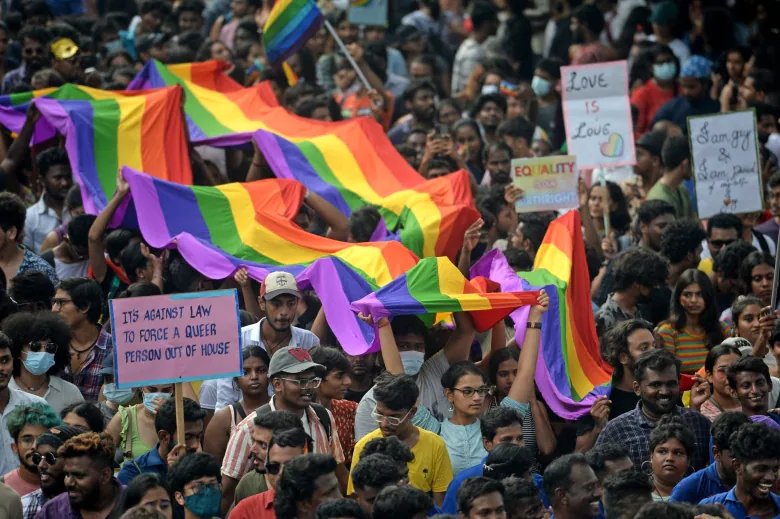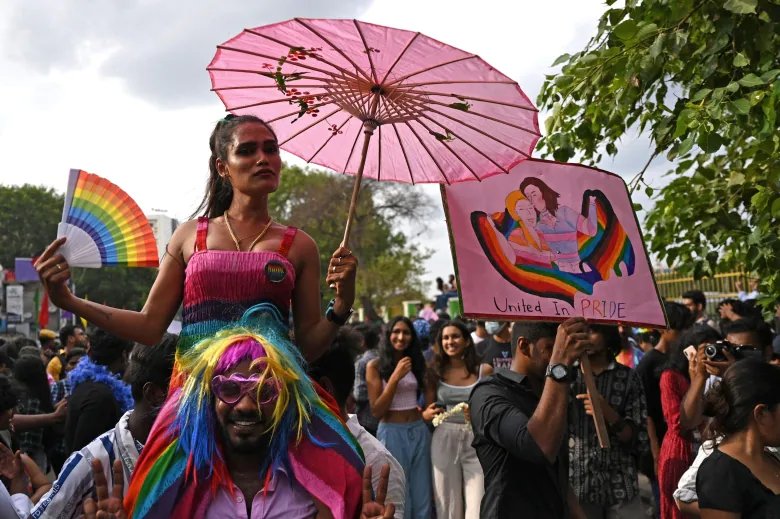
After a pandemic hiatus, Pride events returned to many cities around the world on Sunday.
Streets were once again filled with celebrations and parades, but many others were held under drastically different moods.
Here’s a look at how Pride was marked around the world:
Celebrations in Canada
Canada’s largest Pride celebration returned to Toronto after a two-year pandemic-induced hiatus Sunday, with thousands of revelers thronging downtown streets despite the shadow of recent anti-LGBTQ violence.
Tens of thousands of people packed the parade route, some perched on construction scaffolding, as the procession made its way from the north end of the Gay Village through the heart of downtown Toronto to Yonge-Dundas Square.
“It’s really rewarding. It’s an honour. We’re excited to be on the street celebrating Pride,” said Sherwin Modeste, executive director of Pride Toronto, the non-profit organization behind the festival.

Organizers said ahead of the weekend the festival was working with private security firms to conduct safety checks for weapons at designated spaces.
The risk of a possible thunderstorm never materialized Sunday afternoon as only intermittent rain showers fell on marchers adorned in rainbow colours.
The parade was the culminating event in Pride Toronto’s month-long festival program, but festivities were slated to continue into Sunday night, including outdoor concerts along Church Street in the Gay Village. The festival also hosted a number of other events over the weekend, including the Trans March on Friday and the Dyke March on Saturday.

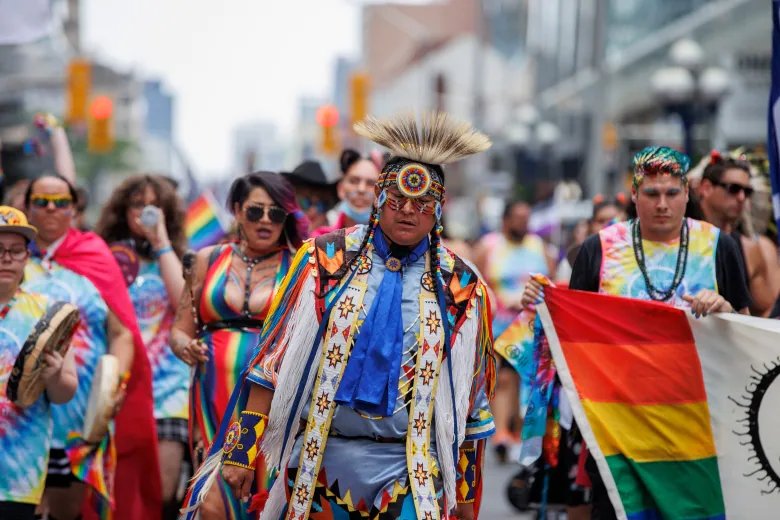
Parades, protests in the U.S.
Thousands of people — many decked out in Pride colours — lined the parade route through Manhattan, cheering as floats and marchers passed by.
New York’s first Pride March, then called the Christopher Street Liberation Day March, was held in 1970 to mark the first anniversary of the Stonewall rebellion, a spontaneous street uprising triggered by a police raid on a gay bar in Manhattan.
That protest spirit was alive again on Sunday, with many at the parade drawing attention to abortion rights following the U.S. Supreme Court’s decision on Friday to overturn Roe v. Wade, a 1973 landmark ruling that had secured constitutional protections for abortion in the country for nearly 50 years.
In San Francisco, some marchers and spectators held signs condemning the court’s abortion ruling.
U.S. House Speaker Nancy Pelosi, who rode in a convertible holding a gavel and a rainbow fan, said the large turnout was an acknowledgement that Americans support gay rights.
San Francisco’s first march was in 1972 and had been held every year since, except during the last two years of the COVID-19 pandemic.
LGBT leaders fear the Supreme Court’s decision endangers personal freedom beyond abortion rights. In a concurring opinion, Justice Clarence Thomas wrote that the court might reconsider other precedents, mentioning specifically rulings protecting the rights to contraception, same-sex intimacy and gay marriage.
In Chicago, Mayor Lori Lightfoot — seen second from the left in the first photo below — called the top court ruling a “momentary setback” and said Sunday’s events were “an opportunity for us to not only celebrate Pride but be resolved for the fight.”
“We will not live in a world, not in my city, where our rights are taken from us or rolled back,” said Lightfoot, Chicago’s first openly gay mayor and the first Black woman to hold the office.
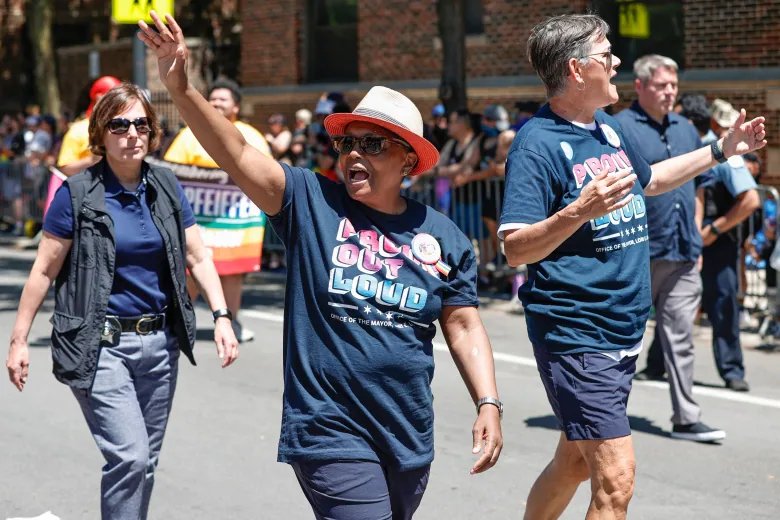
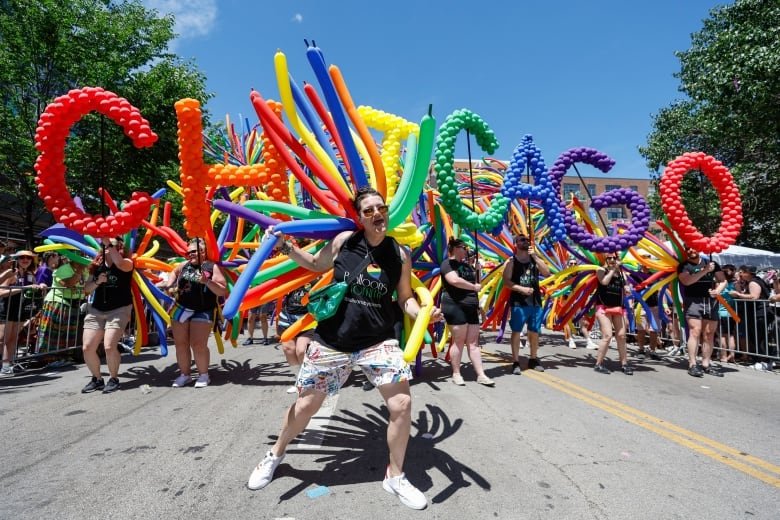
Arrests in Turkey
Dozens of people were detained in central Istanbul after city authorities banned a Pride march.
Turkey had previously been one of the few Muslim-majority countries to allow Pride marches, but the country’s largest city has banned the march since 2015. Large crowds nonetheless gather every year to mark the end of Pride Month.
Organizers said more than 100 people were arrested on Sunday. Images on social media showed people being frisked and loaded onto buses.
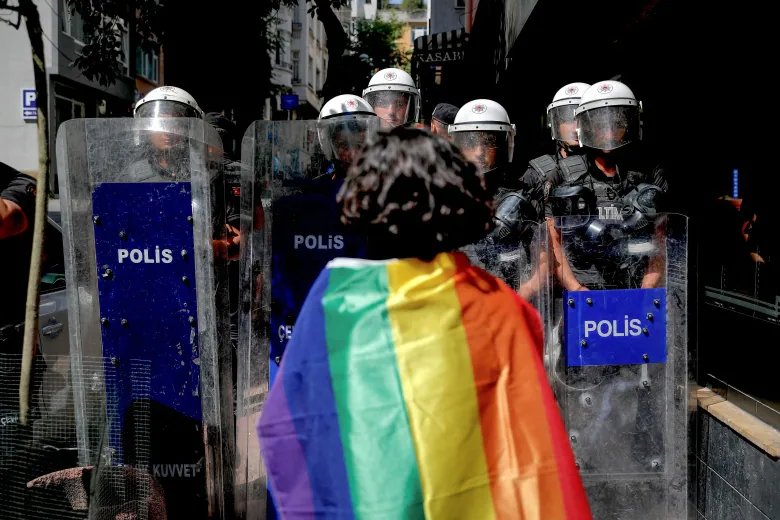
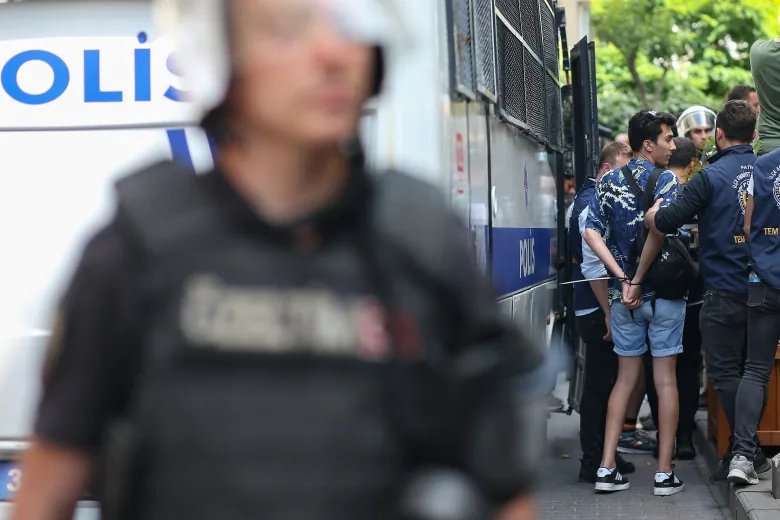
Mourning in Norway
Norway’s prime minister, pictured in the first photo below, and members of the royal family joined mourners at a memorial service for the victims of a shooting attack as the capital held its annual Pride festival.
A gunman opened fire in central Oslo’s nightlife district early Saturday, killing two men and wounding more than 20 other people in what the Norwegian security service called an “Islamist terror act.”
The capital’s Pride parade was scheduled to take place on Saturday but was cancelled. Police investigators said it was unclear whether hatred of people based on sexual orientation and gender identity motivated the attack.
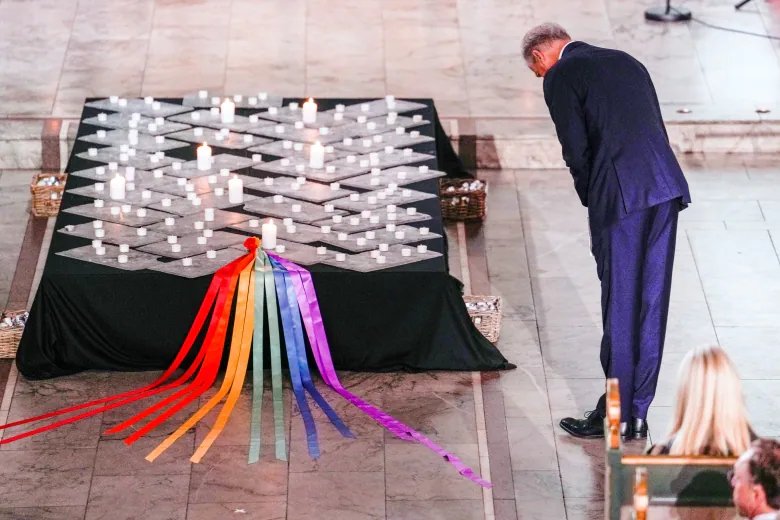
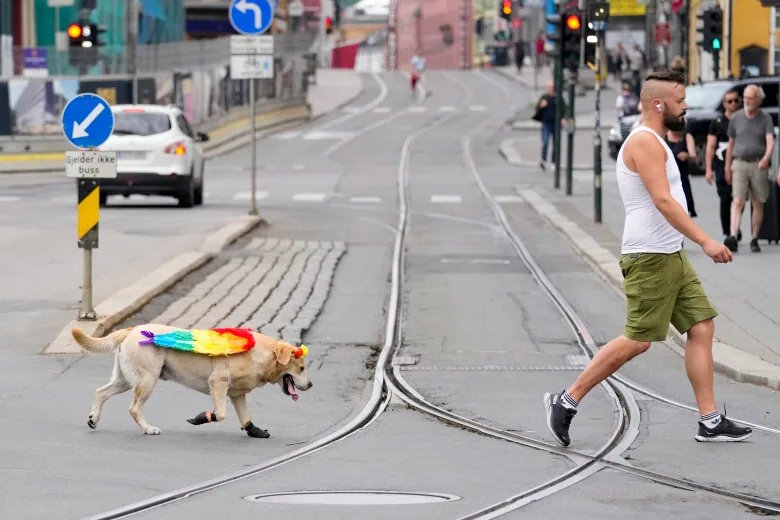
Demands for inclusion in India
Along with celebrations, demands for inclusion were seen at a Pride parade in the southern Indian city of Chennai.
Marital rights, right to adoption, right to property and better surrogacy laws were some of the demands by attendees.
Same-sex relations are considered taboo by many in socially conservative India, and while it no longer carries the previous punishment of up to 10 years in prison, other rights such as gay marriage are likely to prove elusive.
